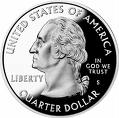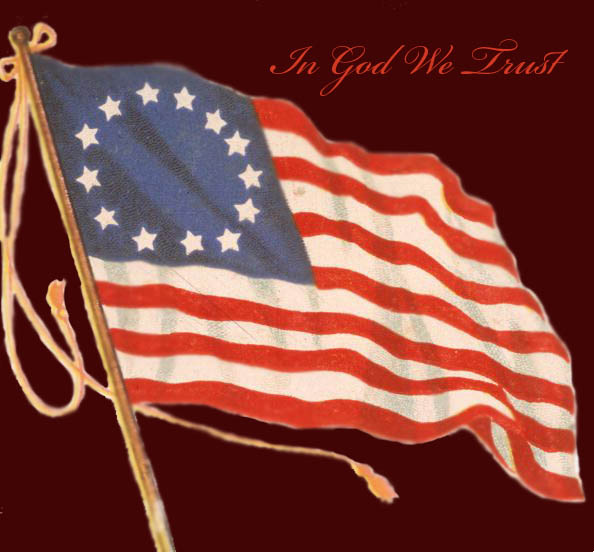Blog
Back to Boston 1773: The British Townshend Scheme (continued)
Part 5: of an 18-part series
The new duties were imposed not on commercial grounds, but for political reasons; not to regulate trade, but for revenue and to assert British sovereignty.
To be continued...
The new duties were imposed not on commercial grounds, but for political reasons; not to regulate trade, but for revenue and to assert British sovereignty.
- Its aggression on the ancient self-government was pointed out:
- Each colony, as an integral part of the nation, had a general assembly, which, though subordinate, was a free, deliberative body.This law-making power regulated the internal police; which meant, that it provided for the elective franchise, representation, trial by jury, the habeas corpus, the concerns of order, education, and religion.
- These assemblies, with the council, had the right to make the laws bearing exclusively on America and that the king was the common executive, whose rightful prerogative was in force in each colony as it was in England.
- This power was the custodian of the municipalities; and they, in the fine words of Mirabeau, are the basis of the social state, the safety of every day, the security of every fireside, the only possible way of interesting the entire people in the government, and of securing all rights. (Richard Frothingham, 1890)
To be continued...
Back to Boston 1773: The British Townshend Scheme
Part 4: of an 18-part series
These acts, in brief, imposed duties on glass, paper, painters colors, and tea; established a board of customs at Boston to collect the revenue throughout America; and legalized writs of assistance. The preamble of the act imposing duties stated that they were laid for raising a revenue to provide for the support of civil government in the provinces, and for their general defence. It was designed that the governors, judges, and attorneys should be rendered independent of the local assemblies. The extent to which parliament interfered with these bodies was seen in the law suspending the New York assembly from the exercise of the powers of legislation until it should comply with the act requiring it to provide quarters for British troops. (Richard Frothingham)
The ministry seemed bent on giving full force to the Declaratory Act, and governing the colonies in all cases whatever; and their arbitrary practices grated harshly on a people habituated to the ways of freedom.
To be continued...
Charles Townshend, chancellor of the exchequer, father of the Townshend Acts, 1767
Implementing The Declaratory Act of 1766: that Parliament had the right to bind the colonies in all cases whatsoever. These acts, in brief, imposed duties on glass, paper, painters colors, and tea; established a board of customs at Boston to collect the revenue throughout America; and legalized writs of assistance. The preamble of the act imposing duties stated that they were laid for raising a revenue to provide for the support of civil government in the provinces, and for their general defence. It was designed that the governors, judges, and attorneys should be rendered independent of the local assemblies. The extent to which parliament interfered with these bodies was seen in the law suspending the New York assembly from the exercise of the powers of legislation until it should comply with the act requiring it to provide quarters for British troops. (Richard Frothingham)
The ministry seemed bent on giving full force to the Declaratory Act, and governing the colonies in all cases whatever; and their arbitrary practices grated harshly on a people habituated to the ways of freedom.
To be continued...
Back to Boston 1773: The Government-Granted Rights of Every Freeborn Englishman
Part 3: of an 18-part series
No scutage or aid shall be imposed in our kingdom, unless by the general council of our kingdom; except for ransoming our person, making our eldest son a knight, and once for marrying our eldest daughter; and for these there shall be paid no more than a reasonable aid. In like manner it shall be concerning the aids of the City of London.
Whereas the late king James the Second by the assistance of divers evil counsellors, judges and ministers employed by him did endeavour to subvert and extirpate the Protestant religion and the laws and liberties of this kingdom. . . .By levying money for and to the use of the crown, by pretence of prerogative, for other time and in other manner than the same was granted by parliament.
And thereupon the said lords spiritual and temporal and commons pursuant to their respective letters and elections being now assembled in a full and free representative of this nation, . . . do in the first place (as their ancestors in like case have usually done) for the vindicating and asserting their ancient rights and liberties, declare: . . . That the levying money for or to the use of the crown by pretence of prerogative without grant of parliament for a longer time or in other manner than the same is or shall be granted is illegal.
To be continued...
Magna Charta, 1215
JOHN, by the grace of God, King of England, Lord of Ireland, Duke of Normandy, Aquitaine, and Count of Anjou, to his Archbishops, Bishops, Abbots, Earls, Barons, Justiciaries, Foresters... and his faithful subjects, greeting. Know ye, that we, in the presence of God, and for the salvation of our soul, and the souls of all our ancestors and heirs, and unto the honor of God and the advancement of Holy Church, and amendment of our Realm... have, in the first place, granted to God, and by this our present Charter confirmed, for us and our heirs for ever:No scutage or aid shall be imposed in our kingdom, unless by the general council of our kingdom; except for ransoming our person, making our eldest son a knight, and once for marrying our eldest daughter; and for these there shall be paid no more than a reasonable aid. In like manner it shall be concerning the aids of the City of London.
Petition of Right, 1628
HUMBLY show unto our Sovereign Lord the King, the Lords, Spiritual and Temporal, and Commons in Parliament assembled, that whereas it is declared and enacted by a statute made in the time of the reign of King Edward the First, commonly called Statutum de tallagio non concedendo, that no tallage or aid shall be laid or levied by the King or his heirs in this realm, without the good will and assent of the Archbishops, Bishops, Earls, Barons, Knights, Burgesses, and other the freemen of the commonalty of this realm: and by authority of Parliament holden in the five and twentieth year of the reign of King Edward the Third, it is declared and enacted, that from thenceforth no person shall be compelled to make any loans to the King against his will, because such loans were against reason and the franchise of the land; and by other laws of this realm it is provided, that none should be charged by any charge or imposition, called a Benevolence, nor by such like charge: by which, the statutes before-mentioned, and other the good laws and statutes of this realm, your subjects have inherited this freedom, that they should not be compelled to contribute to any tax, tallage, aid, or other like charge, not set by common consent in Parliament... Rights and Liberties: English Bill of Rights, 1689
WHEREAS the lords spiritual and temporal and commons assembled at Westminster lawfully, fully and freely representing all the estates of the people of this realm, did upon the thirteenth day of February in the year of our Lord one thousand six hundred eighty-eight, present unto Their Majesties, then called and known by the names and style of William and Mary, prince and princess of Orange, being present in their proper persons, a certain declaration in writing made by the said lords and commons in the words following viz:Whereas the late king James the Second by the assistance of divers evil counsellors, judges and ministers employed by him did endeavour to subvert and extirpate the Protestant religion and the laws and liberties of this kingdom. . . .By levying money for and to the use of the crown, by pretence of prerogative, for other time and in other manner than the same was granted by parliament.
And thereupon the said lords spiritual and temporal and commons pursuant to their respective letters and elections being now assembled in a full and free representative of this nation, . . . do in the first place (as their ancestors in like case have usually done) for the vindicating and asserting their ancient rights and liberties, declare: . . . That the levying money for or to the use of the crown by pretence of prerogative without grant of parliament for a longer time or in other manner than the same is or shall be granted is illegal.
To be continued...
Back to Boston 1773: Tea Party Presuppositions (Part 1 of 18)
Part 1: of an 18-part series
The Boston Tea Party of 1773 asserted the principle that The Law of Nature governs the right to taxation.
The Boston Tea Party of 1773 asserted the principle that The Law of Nature governs the right to taxation.
- Our writer... tells us that formerly the right of taxation was in the king only. I should have been glad if he had pointed us to that time. We know that kings - even English kings - have lost their crowns and their heads for assuming such a right. Tis true this strange claim has occasioned much contention, and it always will as long as the people understand the great charter of nature upon which Magna Charta itself is founded,No man can take another's property from him without his consent. This is the law of nature; and a violation of it is the same thing, whether it be done by one man who is called a king, or by five hundred of another denomination... Samuel Adams, Boston Gazette, Jan. 9, 1769
- Taxation without representation is tyranny. James Otis, Massachusetts, 17251783



